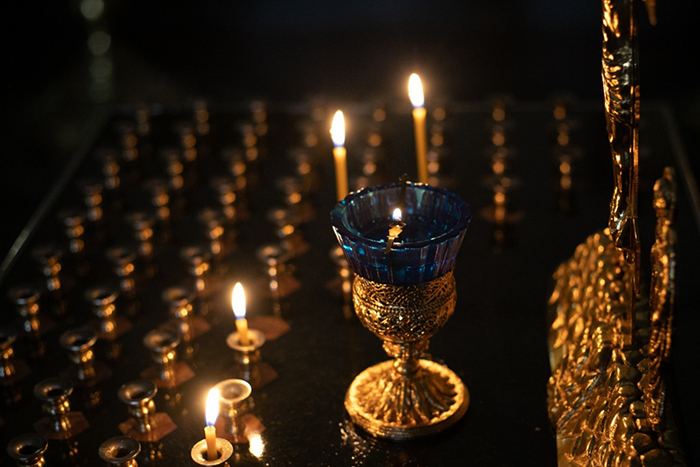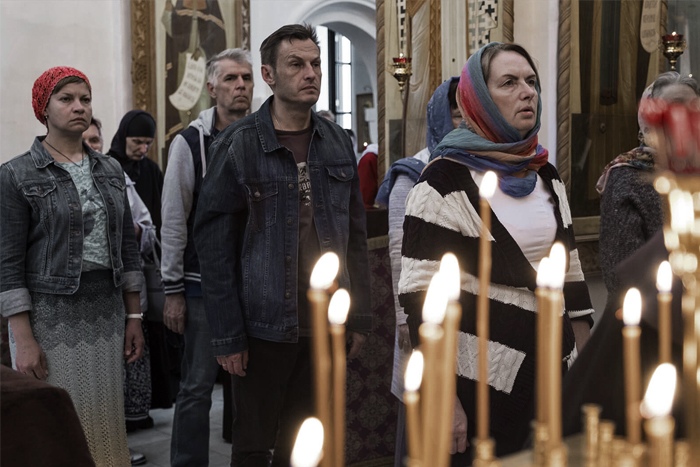
One week after Easter, the words “Christ is risen – He is Risen, indeed” still reverberate in our ears. People usually go to the cemetery on Monday or Tuesday of the following week to commemorate their deceased. This is a day of rejoicing. We share with the deceased the joy of the resurrected Christ, who trampled death.
It is here that many people ask an insistent question, which they often asked me too: “If Christ trampled death, then why do people keep dying? It is no less painful than before His coming. Why has nothing changed?”
There is nothing new in this question. It was put before the apostles already, and St. Peter deals with it in his Second Epistle: “Where is the promise of his coming? for since the fathers fell asleep, all things continue as they were from the beginning of the creation” (2 Peter 3:4).
Those who so ironically asked Peter, of course, were sure that Christians were dreamers. Who can change the powerful and inevitable law of death that works in nature?
Christians themselves, however, thought differently. For them, Jesus’s death on the cross and resurrection were always the irrefutable truth and foundation of their faith. This general idea was well expressed by the 14th-century theologian Nicholas Cabasilas (†1371):
“The Savior completely banished the last seat of death from nature by His Resurrection. If physical death persists, then it must have some higher meaning. Once we find it, all doubts will immediately fall away.”
This is how St. Demetrius of Rostov (†1709) deals with this topic: There are three types of death: corporal, mental and eternal, i. e. hell.
Corporal death is the separation of the soul from the body. It is spoken of in the Psalms: “Thou takest away their breath, they die, and return to their dust.” (Psalm 104).
Mental death is the separation of the grace of God from the soul. This death comes from sin, which drives away the grace of God from the soul, as night drives away the light. “O man,” says St. John Chrysostom († 407), “you weep over the body with which the soul is parted, but you do not weep over the soul with which God is parted.”
Finally, eternal death is the continuation of this state of separation with God throughout eternity.
Out of these three types of death, Christ only trampled two, the mental and the eternal. It suffices for man to turn to God in repentance to be immediately resurrected from these two deaths.
The Divine Educator allowed the corporal death to remain in this world until the end of the ages. There are several reasons for that.
One is that people should reject sin and be disgusted by it. You could say that death is the daughter of sin. The Apostle James writes the following: “Then when lust hath conceived, it bringeth forth sin: and sin, when it is finished, bringeth forth death” (James 1:15). Like father – Sin, like daughter – Death. If you cannot feel the effect of sin in yourself, look at the stinking corpse, and recognize Sin, the vile father, by looking at its filthy daughter Death.
Second, Christ permitted bodily death so that men might not be drawn to worldly pleasures and bodily beauty. Both are often captivating to the heart. Therefore, look at what is left of them! Ashes and stinking corpses.
Third, death helps us to fix our morals. By the bridle of death, God holds back the infinite spread of evil in the human race. God frightens us with death so that people do not become entrenched in evil. Thus, the judge orders the gallows to be set up so that criminals would stop their malice, at least in view of them.
Fourthly, death humbles the arrogance of man. If it did not exist, people would become arrogant in their self-sufficiency and deify themselves. Remember Alexander the Great, who didn’t hesitate to call himself a god. What if that imaginary god had lived forever, how much evil could he have done? He already claimed that he held the east with one hand, and the west with the other. If he wasn’t mortal, he would have ceased to consider himself a human being altogether. Death opened his eyes. At the age of 32, Alexander died like all other mortals (323 B.C.).
God does not disclose to us the time of our death, and that is not for no reason, either. He knows our recklessness and carelessness very well.
“No one,” says St. John Chrysostom, “would ever care about virtue if that day was known, but anyone, knowing his last day, would commit countless crimes. If we, not knowing neither the day nor the hour of our death, dare to commit innumerable sinful deeds, what would we not dare to do if we knew that we would live many more years on earth and would not die soon?
That is why the memory of death is useful and it is recommended to be constantly sober and vigilant (1 Peter 5:8).
St. Theophan the Recluse offers a very good analogy. He says that the person who remembers death is like a student who is going to have an exam. Whatever he does, the exam does not go out of his mind. Every minute is precious to him, and he spends all his time preparing for the exam.
“I wish we could feel that way,” he sighs. Indeed, what good would it do us…!
Translated by The Catalogue of Good Deeds
Source: https://azbyka.ru/days/p-radonica-pochemu-hristos-ostavil-telesnuju-smert



